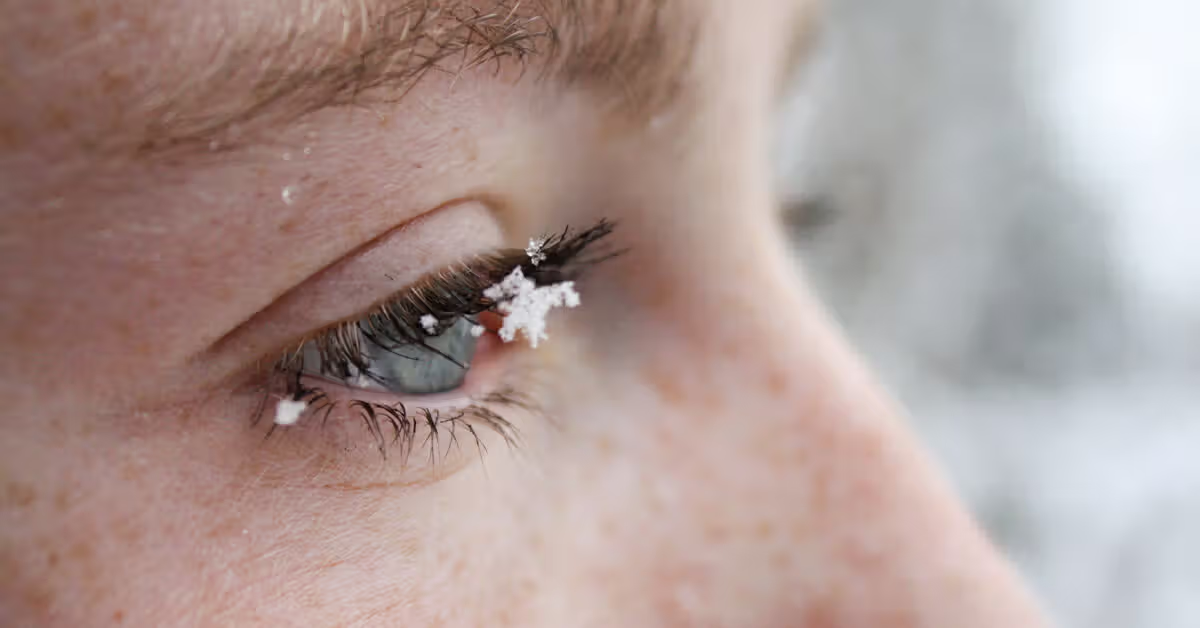Winter brings crisp mornings, hot drinks, and cozy layers, but it also brings challenges for our eyes. Among the most common is dry eyes, a condition that can make everyday activities like reading, working, or driving uncomfortable. Understanding its causes and learning how to manage it helps you enjoy the winter season without frustration.
Winter and Dry Eyes
Cold temperatures and dry air make winter a challenging time for eye health. The combination of reduced humidity outdoors and heated indoor spaces strips moisture from your eyes. The chilly winds that blow during winter cause tears to evaporate more quickly, leaving your eyes susceptible to dryness. People who already experience issues with dry eyes may find their symptoms getting worse as these environmental factors intensify.
How to Spot the Symptoms
While dry eyes may seem like a minor issue, they affect your daily comfort significantly. If you’re frequently experiencing one or more of these symptoms, it may be worth taking extra steps to care for your eyes. Keep an eye out for these common symptoms:
- A gritty or sandy sensation in your eyes
- Redness or irritation, especially after spending time outdoors
- Sensitivity to light or blurry vision
- Feeling like there’s something in your eye
- Exessive tearing, which may indicate your eyes are overcompensating for dryness
- Difficulty wearing contact lenses for extended periods
Tips to Maintain Eye Moisture in Winter
Combatting dry air and protecting your eyes in winter doesn’t mean overhauling your routine. These preventive habits are not difficult to implement and prevent the progression of dryness-related discomfort. Simple strategies can go a long way in preventing and managing dry eyes:
- Use a humidifier: Adding moisture to the air in your home or workplace can help counteract the drying effects of indoor heating.
- Protect your eyes outdoors: Wraparound sunglasses or goggles can shield your eyes from wind and cold air.
- Take screen breaks: Reduce eye strain by following the 20-20-20 rule, look at something 20 feet away for 20 seconds every 20 minutes.
Diet and Hydration for Eye Health
Eating a balanced diet rich in nutrients and staying hydrated are excellent ways to support overall eye health. By making nutrition and hydration priorities, you’ll be enhancing your body’s natural ability to keep your eyes moisturized. including the management of dry eyes.
Add Omega-3-rich foods like salmon, walnuts, and flaxseeds to your meals. They support tear production and eye health. Staying hydrated by drinking plenty of water helps your body maintain natural moisture levels, including in your eyes. These small dietary changes make a big difference in keeping your eyes comfortable and healthy.
Take Care of Your Eyes This Winter
Dry eyes can be more than a minor irritation during the winter months—but you don’t have to live with ongoing discomfort. By preparing for winter’s environmental challenges and implementing these straightforward strategies, you can keep your eyes healthy and comfortable all season long. If your symptoms persist or worsen, speak with an eye care professional to explore additional solutions. Your eyes deserve care and attention, especially during the colder months.
